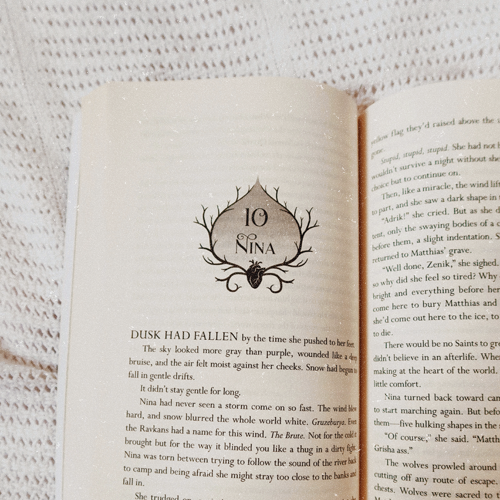World-Building: Politics, Commerce, & Justice
/@ dreaming by dusk
Some people hate world-building and others love it. I consider myself to be the latter. When I begin writing a new story, the first thing I like to do is create the world.
A great way to think about it is like this. A theatre performance would be pretty boring without the set, backdrop, and props to great a spectacle on the stage.
It is the same with writing fantasy and science fiction (for me, at least). A story and its characters are made better by the captivating world around them.
I’ve seen a lot of different techniques and tools for world-building. They can help make a daunting, difficult task for creative writing more enjoyable and imaginative.
As a young writer, I always try to find new resources for writing because every person who writes them is bringing their unique perspective to the subject.
At the same time, I like to use what I learn from others in addition to my ideas and methods for world-building. Today, I’m sharing the second of a 4-part writing inspiration series. These are tips and tricks that I use in my creative projects that you can also use.
If you’re seeking some inspiration for your own story, comic, or work of art, stay here to find out how I write the basics of politics, commerce, and justice for fantasy & sci-fi.
Politics:
How the society in your fictional world is structured and governed will shape the characters’ experiences, behaviours, and daily lives.
A good starting point is to consider the type of government your world has. Such as democracy, oligarchy, monarchy, anarchy, and more. There are at least 10 different types of governments you can choose from.
It is always good to do some research on the government your fictional world will have. But I am also a firm believer of not planning out every little detail unless it is necessary.
Not every single person in your fictional world will be politically active or informed. Just like ordinary people are varied in the same way. Think about what is learned knowledge and what is common knowledge. It may help you draw the line about how in-depth you want the political side of world-building to become.
One technique that’s great for creative writing is to research on your local government’s website. When you research your local community, town, or city, you can find information about the different branches and functions of the government.
Such as environmental care, waste management, arts, culture & heritage, property, and business, to name a few.
Some Questions:
What does the ordinary individual know about their government? Do they know who is in charge? What do they think of the person in charge?
How much power does the government have? Is there a voting system? Who makes the laws?
How is the army formed? Where are the soldiers stationed? What branches of the army are there? How much funding does the army receive?
Are there taxes in this world? How are people taxed, and by how much? How are taxes collected?
Commerce:
How the people who live in your fictional world earn and spend money is important. It shows what skills, trades, products, and services are valued and/or needed in their society.
Take out a pen and paper and write a detailed list of all the professions that are prominent in your setting and story. Every society will need doctors, builders, bankers, farmers, soldiers, craftspeople, and entertainers. These will make up the products and services that are exchanged in everyday life.
Once you know what the common professions and guilds are in the fictional society, the next element is trade. At this stage, you’ll want to return to the geographic aspect of your writing and write down what your world’s natural resources are. What their strengths and weaknesses are when working off the land.
The prominent natural resources are items likely to be exported to regions that don’t have them. The natural resources that the world doesn’t have are items that need to be imported from elsewhere.
When you have a list of the imports and exports of the world, you want to think about how trade is achieved. This is another aspect that may depend on the geography.
Are goods shipped by sea, travelled across the land, or flown across the sky? This will depend on the route that is safest and fastest for transporting items.
Some Questions:
Where do people go to buy/sell items? Where are these places located? How do people barter and trade items?
What is the currency that is used? Is it a local or global currency? What is it made of? What does it look like?
Are there guilds? How do guild members learn their trade/skill/profession? What professions are admired? Which are frowned upon?
Justice:
How the laws of the world are enforced are important because it can mean the difference between peace and order. Such as whether or not people respect and abide by the law and what happens to those who don’t.
You can begin by researching and writing down various criminal offenses. Such as personal crimes, inchoate crimes, statutory crimes, financial crimes, and property crimes, to name a few.
Then, consider how the court system will function in your story’s setting. Write down the roles and people that are involved. Such as judges, juries, lawyers, and executioners. As well as whether there are supreme, high, or district courts and the types of cases they might handle.
Just like your local community’s or city’s government website, you can also do further research on your community’s website for the justice system. This will give you some ideas about the history and structure of the justice system for world-building.
Some Questions:
What are considered minor crimes? What are considered as major crimes?
What are the penalties for committing a crime? What will prevent a convict from going to prison?
Are there prisons? What do they look like? How do they function formally and informally? How are they guarded and operated?
How is the police department structured? What power does the department have? What do they do? How are police officers selected and trained? What do ordinary people think of them?
These are the basic points I like to focus on when I start writing a world for a fantasy or sci-fi work. As you can see, beginning with common and learned knowledge is a great way of figuring out how in-depth you want your world-building to be.
It’s great to put yourself in the shoes of a character and make a list of what they know about their world, and what they can learn about their world.
I hope you found this post helpful for your own writing. I encourage you to use this as a reference guide, but also to seek other writers’ work out, and to brainstorm some of your own ideas for a well-rounded fictional world. Don’t forget to like and share this post!
Good luck writing!













